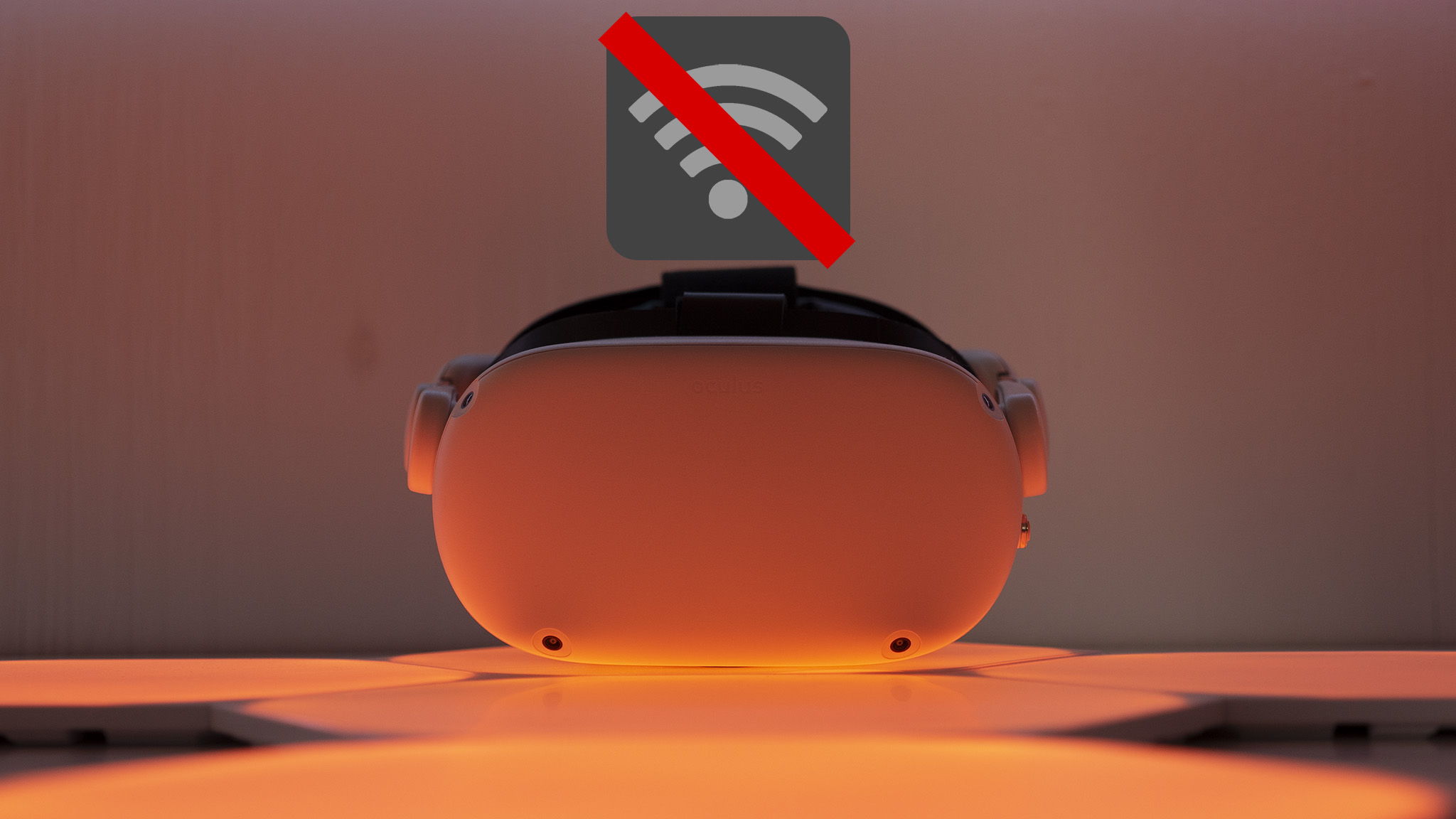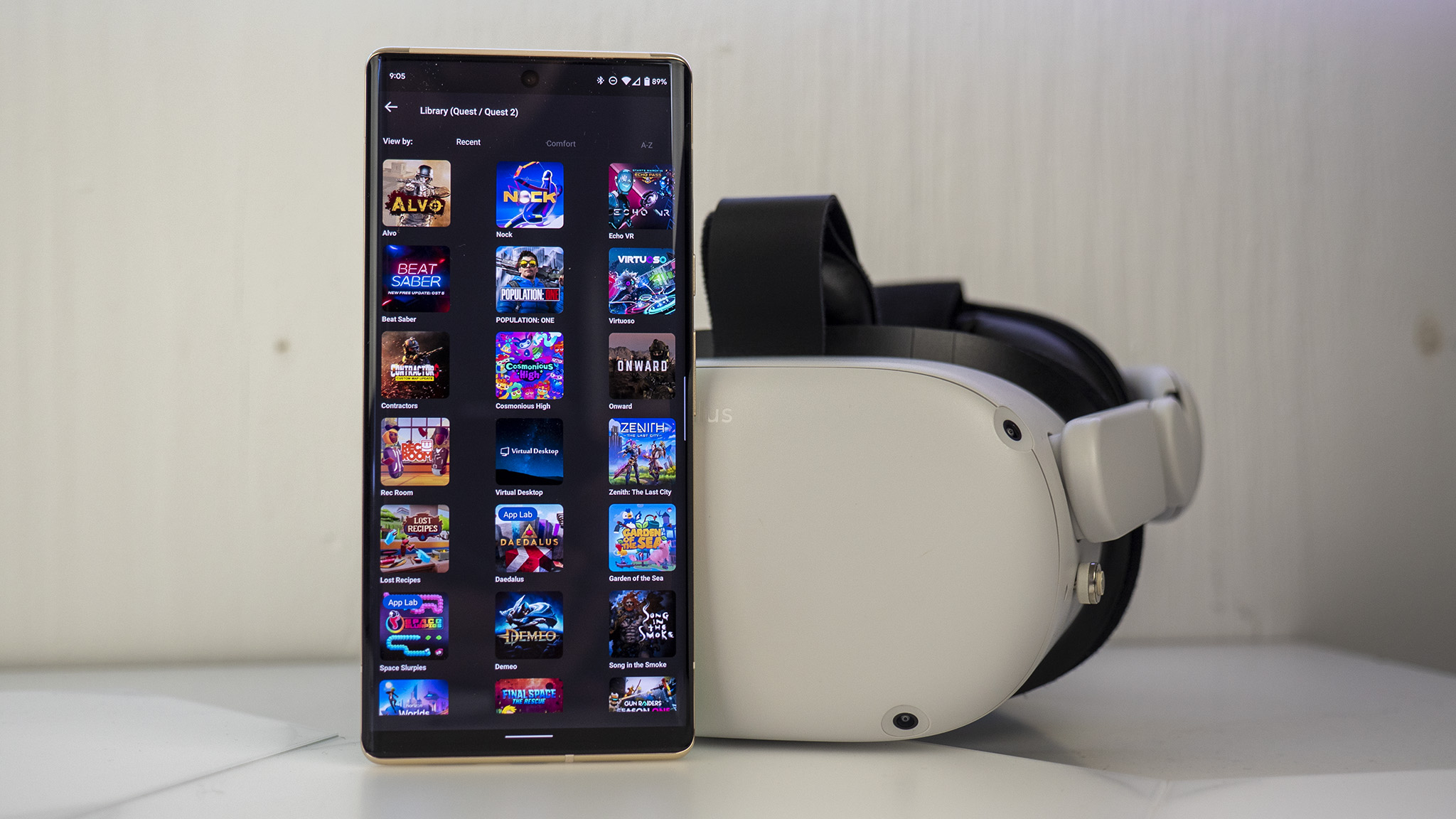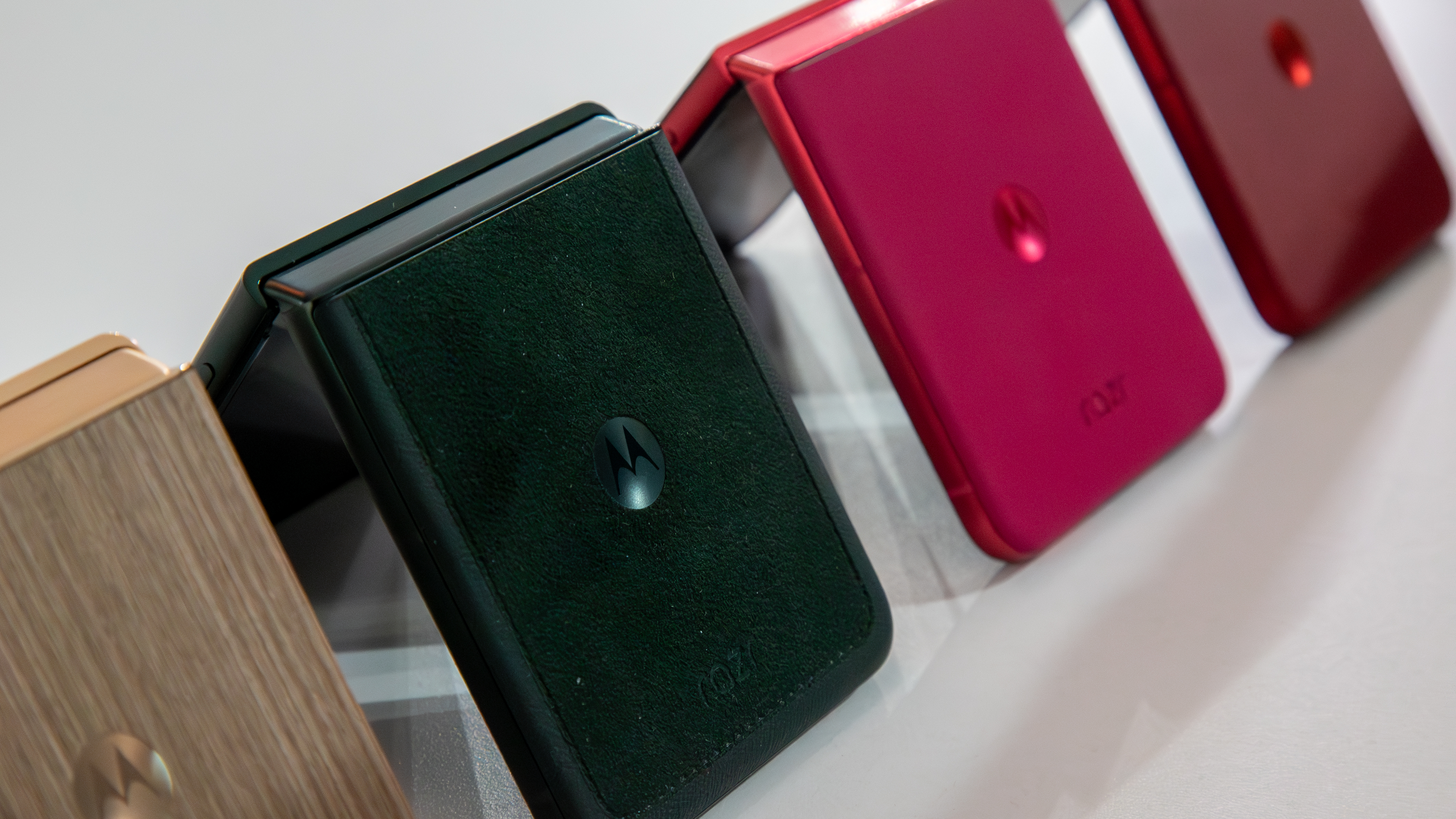The Oculus Quest needs a true offline mode
It's time Meta listens to the cries of its users

As with any good gaming console, the Oculus Quest and Meta Quest 2 headsets are intended to work without a Wi-Fi connection. This sort of thing is a staple for consoles — especially ones that come in a more portable form-factor — but many Quest owners will know that this feature doesn’t always work as expected. That’s especially true since Facebook accounts became a requirement for Quest users.
Case in point, If you own an Oculus Quest or Quest 2 and tried to use it to play games in the last few days, there's a good chance you weren't able to do much with your headset. That’s because of a weird issue that’s affecting both Oculus and Facebook accounts, which is keeping players from even being able to log into their account at all.
While this might make sense for an online-only title where an active account is required to play, it makes absolutely no sense on a headset where games are already installed. If you’re a Quest gamer who just wanted to play any one of the best Oculus Quest 2 games that are already installed on your headset, you wouldn’t be able to unless you could first log in with your Oculus or Facebook accounts.
When Quest headsets have an active internet connection, they check in with Meta’s servers before doing anything else. If that account check fails, everything else beyond that also fails.
Let's say you wanted to take your Quest with you on vacation but didn't want to hook it up to the hotel Wi-Fi. That would be fine since the headset would recognize it's offline and have no way to check with Meta's servers first. The only hurdle you'd run across is that you couldn't play online games with other people. Totally expected behavior.
But what happens when you do connect to Wi-Fi? Well, when Quest headsets have an active internet connection, they check in with Meta’s servers before doing anything else. If that account check fails, everything else beyond that also fails.
I previously wrote about this exact issue back in October when Facebook’s servers went down globally. While that rendered Quest headsets useless for maybe six hours or so, this most recent accounts problem has, in the case of some users, rendered Quest headsets useless for days at a time. Comments on our social media accounts have proven that this isn’t just a widespread problem; it’s also one that’s lasting a lot longer than it should.
Be an expert in 5 minutes
Get the latest news from Android Central, your trusted companion in the world of Android
As I said in the October piece, these types of issues are totally avoidable if Meta would just implement one simple solution: true offline play.

Sure, you’d never experience this issue if your Quest was not connected to a Wi-Fi network, but that’s an unreasonable request. If I turn on a Quest headset and it has games installed, I should be able to launch every single one of them. Account validity checking is something that should happen when I’m trying to play an online game or hopping on to the Oculus store to download or update a game.
While Meta is still working on decoupling Facebook accounts from the Quest experience — a process that’s incredibly complex and, I surmise, is probably partly responsible for what happened this week — the company really needs to give its users the ability to play installed apps and games no matter what their account status might be.
If I turn on a Quest headset and it has games installed, I should be able to launch every single one of them regardless of the status of my account.
After all, if I purchase games, I expect to have access to my library at all times. That’s especially true if I’ve already got them installed on my system. Folks who have their Facebook accounts banned also face the same problem of losing access to everything they’ve ever purchased, and that’s really just not okay.
I posed the possibility to Meta but the company was unwilling to comment beyond the statement that was already given to Android Central previously:
“The vast majority of accounts have now been restored. Anyone still experiencing an issue is encouraged to contact Oculus Support.”
While that will almost certainly get a user’s account fixed, it doesn’t fix the wider problem. Meanwhile, because of this huge oversight that’s not a problem on any other console in existence, users cannot play games they own, and that’s the real crux of the issue.
There are a lot of problems here with licenses and other types of similar checks. I totally understand that these issues are complicated and require complicated solutions and agreements with developers and publishers, but these are conversations that need to happen.
In the age of DRM — that's Digital Rights Management — developers and publishers understand that gamers can't always be online. That's why there are requirements for games to check in every once in a while to ensure you're not running a pirated copy. That's beyond the scope of this article, but it's a solvable solution. After all, everyone else in the industry does it.
Meta, it’s time to get this fixed once and for all. For all we know, the next problem will take even longer to fix than this one.

